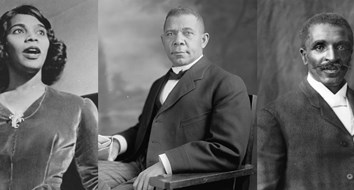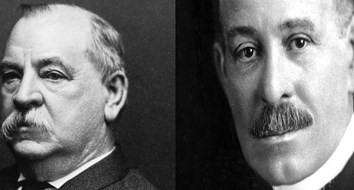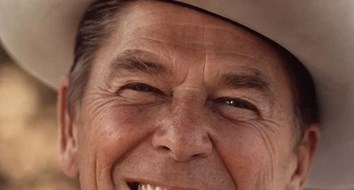Download:
At the G8 Summit in Scotland last July, hosted by Britain’s Tony Blair, European and North American politicians (all of them white) cried crocodile tears for the plight of black Africans. Echoing a gaggle of actors, rock stars, socialist ideologues, Third World dictators, and other learned economic-development experts, they called for another transfer of wealth from developed nations to the undeveloped ones of Africa—which, by most measures, would seem to exclude no country on the continent.
G8 leaders want governments to dramatically boost the overall level of foreign aid to Africa and grant relief for debts incurred by African regimes. The magnitude of the proposed subsidies brings new meaning to the usually pejorative phrase “throwing money at the problem.”
Bold, imaginative leadership? New, creative solutions to intractable problems? Hardly. More like political posturing, expensive guilt trips, and ignorance of reality and economics. The collective response of thinking people should be,“Been there, done that.”
Indeed, that is the response of a growing number of thinking people in Africa itself. Not the governments there, of course, whose fingers foreign aid must often slip through first before trickling into the mouths of the hungry citizens they oppress. Not the rich, transient showmen like Bono who think they’ve “experienced Africa” by venturing out of a five-star hotel with a digital camera. I’m referring to Africans who have seen firsthand what foreign aid has done to their countries, who understand what really makes an undeveloped country become developed, and who are writing and speaking out with a boldness and erudition that is challenging the failed status quo.
One such man is former grade-school teacher James Shikwati of Kenya (the subject of this column in May 2002). Thirty-four-year-old Shikwati made waves in both Europe and Africa in a July interview published by Germany’s Der Spiegel. “For God’s Sake, Please Stop the Aid!” screamed the headline. Shikwati argued that billions in past aid have simply fattened bureaucracies, bred corruption, and fostered complacency at best. At worst, aid has weakened local farmers and entrepreneurs, who can’t compete with free foreign stuff. “If the industrial nations really want to help the Africans,” he declared, “they should finally terminate this awful aid.”
Shikwati’s think tank, the Inter-Region Economic Network (www.irenkenya.org), fosters free-market economic education. It hosts seminars in east Africa focused on training Africans to develop their own entrepreneurial talents and oppose government policies that stand in their way. He believes that development cannot happen as long as large numbers of Africans, encouraged by Western statists, think of themselves as victims and beggars. Instead of acting like “a child that cries for its babysitter,” he says Africa “should stand on its own two feet.”
Leon Louw of South Africa was all but alone when he said similar things in the 1970s. This year, the 30th anniversary of his Free Market Foundation in Johannesburg and Cape Town (www.freemarketfoundation.com), he can celebrate the fact that groups like his and Shikwati’s are on the rise in Africa—and striking a chord with ordinary Africans as they put the policies of governments at home and abroad under the microscope.
In Africa’s most populous nation, Nigeria, criticism of Western aid is echoed by former journalist Thompson Ayodele (also the subject of this column, in April 2003). As founder and head of the Institute of Public Policy Analysis (www.ippanigeria.org), Ayodele observes that “From 1970 to 2000 Africa received about $400 billion in aid. Africa has got enough financial help from overseas. . . . If anyone really wants to help poor Africans out of the vicious circle of poverty he must promote free commerce, protect property rights, encourage openness to trade, allow markets to flourish and reduce government intervention in the economy.”
Ayodele doesn’t want Tony Blair’s money, but he does want a policy change. “Prime Minister Blair should use the same zeal and commitment which he now devotes to promoting foreign aid and debt cancellation to call instead for the phasing-out of trade-distorting subsidies and tariffs among his allies which total $1 billion a day. Abrogating those policies would do far more to improve the lives of millions of poverty-stricken people in Africa than any amount of foreign aid.”
Harmful as they are, trade barriers imposed by non-African countries aren’t nearly as bad as the barriers African governments foist on fellow Africans. Average tariffs within Africa, the IMF notes, are more than 50 percent higher than in the rest of the world. Figures from the World Bank indicate that while sub-Sahara African nations hit agricultural commodities from Europe with an average tariff of 19 percent, they burden similar products from their neighbors with a staggering 33.6 percent rate. Moreover, goods sit stranded by red tape at customs in sub-Saharan countries an average of three times longer than they do in western Europe.
For decades Kenyans could buy Ugandan foodstuffs from Britain for less than they could buy them from nearby Uganda. Free traders like Shikwati have imagined how much better off Kenyans would be if they could avoid their own tariffs and the British middleman by buying directly from Uganda. Finally, last January free trade scored a victory when several east African countries signed a joint customs-union protocol that reduced or eliminated many tariffs.
New Liberal Think Tank
Liberalizing trade within Africa is a recurring theme of one of the continent’s newest think tanks, Imani: the Centre for Humane Education (www.imanighana.org). Its founder, Franklin Cudjoe, believes that “a huge deficit of market-oriented policies is the main factor holding Africa back.” He notes that trade restrictions underwrite the massive inefficiencies of state-protected industries at the expense of consumers. His organization is educating young scholars in his native Ghana to promote the needed changes.
Cudjoe speaks in brutally honest terms about the high-level corruption that steals savings from citizens and capital from entrepreneurs. Government spending throughout Africa, he says, routinely funnels both aid and tax dollars to the politically well-connected. When foreign-aid advocates claim that a child dies in Africa every three seconds from hunger or disease, Cudjoe poignantly asks, “But do you realize that $4,700 gets stolen by African governments every second?”
When the Dutch-based airline KLM offered to begin flights from Ghana to neighboring countries, Ghanaian government officials demanded bribes. KLM pulled out. “Western nations didn’t do that to us, and Western aid only helps keep such a system going,” Cudjoe says.
It’s even harder to see how Westerners can be blamed for troubles in Zimbabwe when its leader, Robert Mugabe, lives like a prince as his Marxist policies squander the nation’s dwindling wealth. This past summer alone, Mugabe’s goons forcibly displaced three-quarters of a million people in a campaign against private enterprise and his political opponents. Hundreds of thousands are shivering in tents and hovels, their homes and businesses razed. Does anyone besides Jesse Jackson and Al Sharpton think that what Zimbabwe really needs is a boatload of Western cash?
Market advocates throughout Africa have come to a conclusion once famously expressed by the comic strip character Pogo: “We have met the enemy and he is us.” They understand that foreign subsidies may salve the consciences of naïve foreigners, but they perpetuate the poverty-creating cultural and political pathologies that Africans must shed. They have stepped forward and devoted their careers to filling a longstanding void in discussions about Africa.
If there is reason for hope in Africa, it is not because Westerners may foolishly throw more good money after bad. It is because Africans like Shikwati, Louw, Ayodele, and Cudjoe are plainly telling the world about the painful lessons we all must learn from past policies.





